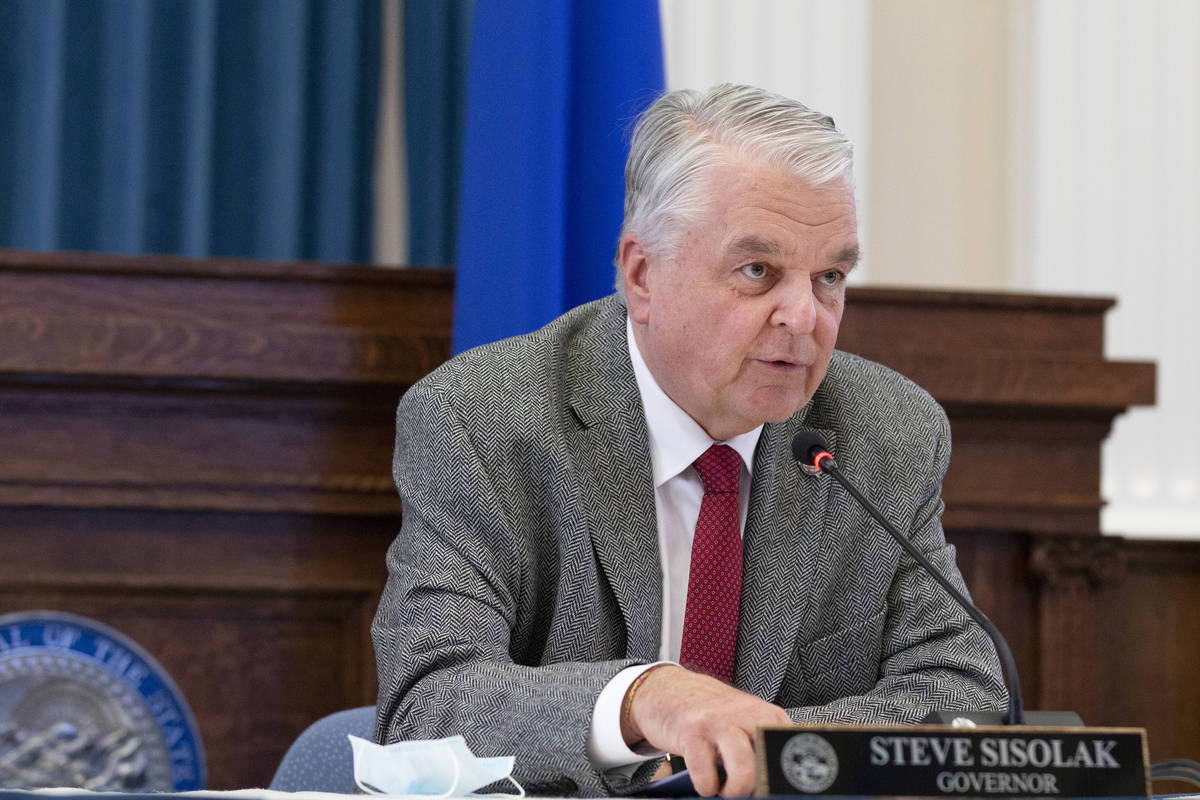Sisolak declares fiscal emergency
Facing budget shortfalls approaching $1 billion for the current fiscal year amid the coronavirus pandemic and economic shutdown, Gov. Steve Sisolak signed a new order Monday to allow the state to tap into its more than $400 million in reserve funds to help offset the holes.
In a release, Sisolak’s office said that the state estimates budget shortfalls ranging from $741 million to $911 million for only the current fiscal year, which ends June 30.
“With the closure of Nevada businesses, including the gaming industry, that was necessary to protect the health of Nevadans, the drop in revenue is not unexpected and it is significant,” Sisolak said in a statement included in the Monday news release announcing the order.
State lawmakers on the Legislature’s Interim Finance Committee are scheduled to take up the fiscal emergency during a meeting Wednesday.
Will allow transfer from ‘rainy day’ fund
The mutual declarations will allow the governor and the Legislature’s Interim Finance Committee to transfer money from the Account to Stabilize the Operation of the State Government, commonly called the rainy day fund, to the state’s general fund.
Casinos and most retail businesses were ordered closed by Sisolak in mid-March as a way to help slow the spread of the virus. Casinos are still closed, but many retail stores were allowed to reopen with several social distancing restrictions in place starting Saturday.
The governor’s office said the two revenue sources hit hardest by the economic crisis were, as expected, gaming and sales taxes, which together make up roughly 46 percent of the state’s general fund income.
In early April, Sisolak told state agencies to submit plans to cut their budgets by up to $687 million over the next two fiscal years. That included calls for a 4 percent cut to agency budgets for the current fiscal year, which would total roughly $170 million in savings.
The ability to access the rainy day funds and the cuts to the agency budgets “are tools the state can utilize to address the shortfalls,” the governor’s office said in the release.
“We must bring all options to the table and work together for all Nevadans to address the extraordinary budgetary shortfalls and do everything within our power and resources to protect critical governmental services,” Sisolak said.
Also on Monday, Sisolak, along with state Senate Majority Leader Nicole Cannizzaro and Assembly Speaker Jason Frierson, signed on to a letter with their peers from California, Colorado, Oregon and Washington to congressional leaders requesting $1 trillion in “direct and flexible relief to states and local governments” to help offset the budget deficits.
“Though even this amount will not replace the decline in revenue that we forecast, it will make a meaningful difference in our ability to make up for COVID-19 revenue losses,” the letter said. “This aid would preserve core government services like public health, public safety, public education and help people get back to work. It would help our states and cities come out of this crisis stronger and more resilient.”
‘Dramatic action’ required, says senator
State Sen. Ben Kieckhefer, R-Reno, a member of the Interim Finance Committee, said the estimated budget shortfall eclipses anything the state has had to weather in such a short period before and will require “some pretty dramatic actions.”
Kieckhefer said that even with the budget cuts and reserve money, the state will probably still have to look for ways to save additional money or else the state could come close to falling below 5 percent of the ending fund balance for the general fund. Falling below that threshold, Kieckhefer said, would negatively affect the state’s credit rating, which would make borrowing money more expensive and could have trickle-down effects like increasing the cost of construction projects.
Kieckhefer called on Sisolak to lay out a plan to fully address the budget holes and said that for the state, “it’s time to hit the brakes pretty hard on the spending.”
“I’m worried this is all moving too slowly,” Kieckhefer said. “As every day passes, the ability to close this deficit becomes more difficult.”
Contact Capital Bureau Chief Colton Lochhead at clochhead@reviewjournal.com. Follow @ColtonLochhead on Twitter.


















